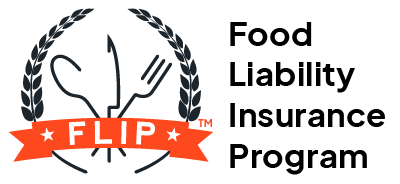Understand Food Truck Requirements in Oregon
Before you invest in some wheels or apply for licenses, there are several aspects of your food truck business to establish first:
- Business name: Aim for a name that reflects the kind of food you sell while being catchy and easy to remember.
- Business classification: Most food trucks are sole proprietorships or limited liability companies (LLCs), but there are other ways to structure your business, such as partnerships and joint ventures.
- Employer identification number (EIN): EINs are issued by the Internal Revenue Service (IRS) and used to identify your business for tax purposes.
- Certificate of Insurance (COI): Otherwise known as proof of insurance, this document provides essential details about your liability coverage. Commercial kitchen landlords and event managers need to see your COI before they allow you to lease a space or operate at their event.
- Food truck business plan: Licensing boards and banks typically require a business plan as part of your application for loans and licenses. It’s also a key resource for helping you keep your business on track.
Obtain Oregon Food Truck Licenses
After meeting the basic requirements to set up your food truck, apply for your necessary licenses and permits.
Individual counties and/or cities determine specific licensing requirements. The Oregon Health Authority (OHA) advises aspiring food cart owners to contact their County Environmental Health Office for detailed directions.
Pro Tip: The Oregon Health Authority provides several resources to guide you through starting a food truck, including an operation guide and a Mobile Food Unit Plan Review Packet.
Business License
- Allows you to do business within a specific area
- Cost: $65–2.2% of net income (varies widely by municipality)
- Where to get it: Your city or county’s local public health authority
Mobile Food Unit License
- Allows you to operate a food service business from a mobile food unit; if you operate in more than one location, you may need multiple licenses
- Cost: Varies by municipality
- Where to get it: Your local public health authority, though the OHA also provides downloadable license application forms that must be sent to your local authority
Zoning/Site Use Permit
- Allows you to conduct business from your food cart in specific areas and designates specific restrictions, such as hours of operation and on-site advertising (if you operate in multiple places, you may need multiple permits)
- Cost: $100–$1,000
- Where to get it: Your city or county government (if you live in an unincorporated area, contact your county government)
Food Handler’s Permit
- Certifies that anyone working in your food truck has passed an exam on food handling and safety best practices
- Cost: $15 or less per person
- Where to get it: OR Food Handlers or other state-approved training courses
Most states also require a seller’s permit, which allows you to collect and remit sales taxes. Unlike most states, Oregon has no state sales tax, so a regular seller’s permit is not required. However, you may still have other tax responsibilities depending on your city and county.
Pro Tip: Per the OHA, you should contact your local health authority before you apply for licenses or purchase/refurbish any mobile food unit. This is to ensure it meets the specific requirements for your area and the type of food services you plan to provide.
Follow Food Truck Laws in Oregon
Whether you sell pad thai at a pod in Portland or egg rolls in Eureka, Oregon has some regulations that apply to all food trucks.
Business owners who violate these laws, unintentionally or not, risk being fined, temporarily shut down, or forced to close their doors, so knowing the laws in your area is crucial.
A few key regulations to be aware of include:
- Food sanitation rules: Oregon has four classes of mobile food units. Classifications are based on your menu and dictate if you need a commissary kitchen as well as what other safety, sanitation, and structural specs your truck must meet.
- Commercial auto insurance: Oregon requires all vehicles to carry auto liability insurance, which includes food trucks.
- Workers compensation laws: All Oregon businesses with employees — whether full- or part-time — are required to carry workers compensation insurance.
- Fire code compliance: The updated fire code includes additions to storage and venting requirements of oils and fuels, as well as increased cart spacing requirements.
- Food foam ban: Oregon has a statewide ban on polystyrene foam containers.
In addition, you may need to complete these forms along with your license application:
Get Oregon Food Truck Insurance
Food truck insurance is a critical part of running your business. Accidents happen all the time, like a customer getting food poisoning or injuring themselves after tripping over your generator cable. With the average food truck claim totaling $6,271, you don’t want to risk paying for these expenses out of pocket.
Oregon food business insurance from Food Liability Insurance Program (FLIP) includes essential coverages to protect your food truck from common claims. Plus, it meets most commercial kitchen and event participation requirements, so you can enter commissary agreements and food festivals without a hitch.

Learn the Cost of Running a Food Truck in Oregon
Running an Oregon food truck comes with its fair share of expenses, and many operators spend $50,000 or more to start their business.
Aside from licensing fees and insurance premiums, here are a few standard operating expenses to factor into your budget:
- Food truck
- New: $85,000–$175,000+
- Used: $30,000–$80,000
- Cooking equipment
- Grill/griddle: $500–$5,000
- Deep fryer: $1,000–$5,000
- Oven: $1,000–$10,000
- Refrigeration
- Refrigerator/freezer: $1,000–$10,000
- Prep table: $500–$5,000
- Safety and sanitation
- Commercial sink: $500–$3,000
- Handwashing sink: $500–$3,000
- Fire suppression system: $2,000–$4,000
- Technology
- Point of Sale (POS) system: $2,000–$4,000
- Inventory management software: $50–$200 per month
Pro Tip: Running your business is expensive, so make sure you’re pulling in a profit with an effective pricing strategy that covers your costs while protecting your margins.
Explore Food Truck Festivals in Oregon
Participating in food truck festivals is an excellent way to introduce your business to new customers and network with other entrepreneurs in your area. Be sure to adhere to local requirements wherever your truck takes you!
Check out these food truck events and festivals in Oregon:
Pro Tip: Looking for more events in your area? Check out our food festival directory for more recommendations!
FAQs About Starting a Food Truck in Oregon
Do I Need a Commissary for a Food Truck in Oregon?
Most food carts and trucks in Oregon need to use a licensed commissary to prepare and store food. However, if the unit meets certain safety rules set by the Oregon Health Authority (OHA), it might not need a commissary.
What Are the Fire Safety Requirements for Food Trucks in Oregon?
Food truck fire safety requirements were updated in 2025. Some of those updates include:
- Food cart spacing: Mobile food units must now have at least five feet of space between the cart and other surroundings
- Hood systems: Cooking equipment that produces smoke or grease-laden vapors must have an exhaust hood
- Other updates related to generators, storage of cooking oils and fuels, fire extinguishers, and more can be found in the digital copy of the Oregon Fire Code The Oregon State Fire Marshal website provides a checklist with diagrams to assist you.

Alex Hastings
Seattle-based copywriter and (WA) licensed insurance agent Alex Hastings leverages her experience as a lover of fast-casual food, baked goods, and iced oat milk lattes. She holds a B.A. in Creative Writing from Western Washington University. Before working at Veracity, she was a retail copywriter at Zulily and an English language teacher in South Korea. Alex is fully trained on FLIP insurance coverages and writes content that connects food and beverage business owners with the policies they need.
Seattle-based copywriter and (WA) licensed insurance agent Alex Hastings leverages her experience as a lover of fast-casual food, baked goods, and iced oat milk lattes. She holds a B.A. in Creative Writing from Western Washington University. Before working at Veracity, she was a retail copywriter at Zulily and an English language teacher in South Korea. Alex is fully trained on FLIP insurance coverages and writes content that connects food and beverage business owners with the policies they need.

Kyle Jude
Kyle Jude is the Program Manager for Food Liability Insurance Program (FLIP). As a dedicated program manager with 10+ years of experience in the insurance industry, Kyle offers insight into different coverages for food and beverage business professionals who are looking to navigate business liability insurance.
Kyle Jude is the Program Manager for Food Liability Insurance Program (FLIP). As a dedicated program manager with 10+ years of experience in the insurance industry, Kyle offers insight into different coverages for food and beverage business professionals who are looking to navigate business liability insurance.

